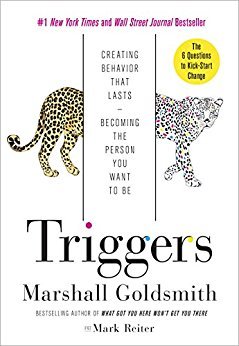More on this book
Community
Kindle Notes & Highlights
Read between
August 15 - August 20, 2018
Fate is the hand of cards we’ve been dealt. Choice is how we play the hand.
Regret is the emotion we experience when we assess our present circumstances and reconsider how we got here. We replay what we actually did against what we should have done—and find ourselves wanting in some way. Regret can hurt.
Inertia is the reason we never start the process of change. It takes extraordinary effort to stop doing something in our comfort zone (because it’s painless or familiar or mildly pleasurable) in order to start something difficult that will be good for us in the long run.
We can change not only our behavior but how we define ourselves. When we put ourselves in a box marked “That’s not me,” we ensure that we’ll never get out of it.
We think we are in sync with our environment, but actually it’s at war with us. We think we control our environment but in fact it controls us. We think our external environment is conspiring in our favor—that is, helping us—when actually it is taxing and draining us. It is not interested in what it can give us. It’s only interested in what it can take from us.
Feedback—both the act of giving it and taking it—is our first step in becoming smarter, more mindful about the connection between our environment and our behavior. Feedback teaches us to see our environment as a triggering mechanism. In some cases, the feedback itself is the trigger.
I’ve isolated three eye-blink moments—first the impulse, then the awareness, then a choice—that comprise the crucial intervals between the trigger and our eventual behavior. These intervals are so brief we sometimes fail to segregate them from what we regard as our “behavior.” But experience and common sense tell us they’re real.
The more aware we are, the less likely any trigger, even in the most mundane circumstances, will prompt hasty unthinking behavior that leads to undesirable consequences. Rather than operate on autopilot, we’ll slow down time to think it over and make a more considered choice.
Hence, the term situational leadership. Hersey and Blanchard believed that leaders should • keep track of the shifting levels of “readiness” among their followers, • stay highly attuned to each situation, • acknowledge that situations change constantly, and • fine-tune their leadership style to fit the follower’s readiness. This was “situational leadership.”
Delegating is for employees who score high on motivation, ability, and confidence. They know what to do, how to do it, and can do it on their own. The leader might say, “Chris, here’s the assignment. You have a great track record. If I can help, just ask. If not, you’re on your own.”
“Half the leaders I have met don’t need to learn what to do. They need to learn what to stop.”
“Our mission in life should be to make a positive difference, not to prove how smart or right we are.”
“Every decision in the world is made by the person who has the power to make the decision. Make peace with that.”
“Am I willing, at this time, to make the investment required to make a positive difference on this topic?”
I would go into the meeting with a positive attitude. • Instead of waiting for someone to make it interesting, I’d make it interesting myself. • I’d try to help the presenter in some way instead of critiquing him in my head. • I would come prepared with good questions. • I would challenge myself to learn something meaningful in the meeting. • I would try to build a positive relationship with someone in the room. • I would pay attention and put away my smartphone.
By taking personal responsibility for your own engagement, you make a positive contribution to your company—and begin creating a better you.
The takeaway: We are professionals at what we do, amateurs at what we want to become. We need to erase this devious distinction—or at least close the gap between professional and amateur—to become the person we want to be. Being good over here does not excuse being not so good over there.


